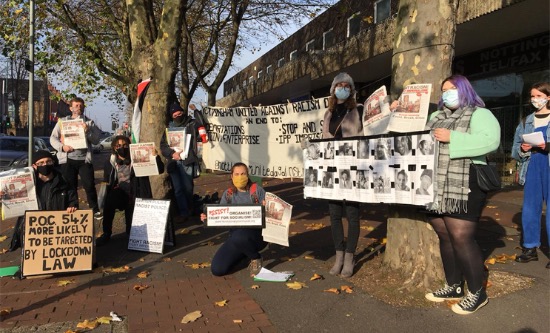
In 1997, when the ‘New Labour’ party swept into power, I was in prison. I was brought up in a house where Tory was a dirty word, so might have been expected to hope that the criminal justice system was set on a more decent course. It did not cross my mind; I am also old enough to remember clearly the previous time Labour took office, in 1974, under Harold Wilson. With one shining exception, Sidney Silverman, who fought tirelessly for the abolition of the death penalty, no Labour politician indicated a desire for root-and-branch reform of a system which, as now, was rotten to the core. ERIC ALLISON writes.
My scepticism was not misplaced; the charge sheet against Blair and his cronies is too long to detail here and includes war crimes, but my interest is still focused on the system that detained me 23 years ago, so David Blunkett heads my list of the guilty.
Appointed Home Secretary in 2001, he replaced Jack Straw, who had taken a hard line on crime and punishment. Blunkett followed suit, bringing in legislation that victimised children, asylum seekers and ethnic minorities swept up by his draconian anti-terrorism laws. In 2003, he introduced a Criminal Justice Act which included the introduction of Indeterminate Sentences for Public Protection (IPPs). The law, which came into force in 2005, gave judges the power to detain indefinitely ‘serious offenders perceived to be a risk to the public’. Judges had the task of setting the minimum custodial period but once that was served prisoners could only be released by the Parole Board deciding that they no longer posed a danger.
Use of the new sentence rapidly spiralled, and many IPP sentences were handed down to men, women and children who, far from being a serious danger to the public, had committed low level crimes. Reflecting this, the average minimum term for an IPP in its first two years was 30 months, with at least one of just 28 days.
From the outset, the IPP attracted criticism – though seldom from within the Labour Party – and in 2008, the government was forced to amend the sentence so it could only be applied to people whose crime would warrant a sentence of four years or more. The change was not retrospective, leaving those already sentenced to short minimum terms still subject to the combined whims of the Parole Board and Prison Service as to when they would be released.
In 2012 the European Court of Human Rights ruled that the British government had breached Article 5 of the Convention on Human Rights by creating a sentence which required the completion of rehabilitative courses in order to be released from prison but not then providing those courses, and awarded damages to the three prisoners who had brought the case.
Following this judgement, Conservative Justice Secretary Chris ‘Ban the Books’ Grayling said: ‘I am very disappointed by the decision. It is not an area where I welcome the court seeking to make rulings.’ However, in 2011 the Con-Dem Coalition, which had succeeded Labour in government, had already accepted that the IPP should be scrapped – a move vocally opposed by Labour’s Shadow Justice Secretary, now London Mayor, Sadiq Khan.
By the time the IPP was abolished in December 2012, 8,711 people had been sentenced to the punishment. Although no more would be given out by the courts, again the change was not retrospective, and thousands of prisoners remained trapped within its cruel compass. As of September 2020, there were 1,895 IPP prisoners in custody who had never been released from their original sentences. A further 1,357 had been recalled to prison for breaching their licences, mostly not by committing a further offence but for poor behaviour that fell short of illegal activity. Since 2005, 65 IPP prisoners have committed suicide, and the self-harm rate for IPP inmates far exceeds that of the general prison population.
In December 2020, in a report on the recalling of IPP prisoners, former Supreme Court Justice, Lord Brown, described IPPs as ‘the greatest single stain on our criminal justice system’. Meanwhile, the architect of the wretched legislation has done nothing to undo the damage he inflicted. David Blunkett now dons ermine robes and claims a generous attendance allowance as Baron Blunkett of Brightside and Hillsborough, while his victims continue their suffering in the hellish purgatory of the indeterminate sentence.




